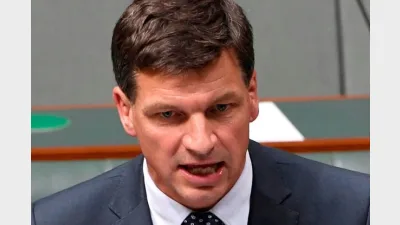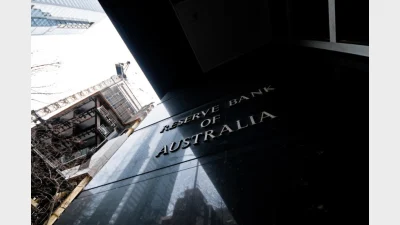Super fund execs lose sleep over Trump’s policies



Australian superannuation funds are grappling with heightened global instability, as US policy shifts create a volatile backdrop for investment strategies.
Speaking at the Australian Council of Superannuation Investors (ACSI) conference on Wednesday, executives from major superannuation funds expressed growing concern over the risks posed by the current global environment, particularly the implications of US political decisions.
John Pearce, chief investment officer at UniSuper, acknowledged the rising "nervousness" sweeping through global markets as Donald Trump's tariffs escalate tensions.
What UniSuper will be closely monitoring is the aftermath of Liberation Day, and whether it brings the US any closer to a recession, along with the flow-on impact this could have on global markets.
Pearce explained that while UniSuper's primary focus remains on long-term investment strategies, the current surge in short-term volatility is becoming increasingly hard to overlook.
“It’s nice to sit back and think we take long-term views but the reality is the long-term is comprised of lots of short-terms,” Pearce said.
“We’ve got a massive cohort [of members] that are in retirement phase at the moment, they don’t care what happens in the long-term,” he stressed. “We have to feel their pain as well.”
He shared that while UniSuper’s members aren’t panicking just yet, some have shifted from growth options to cash. However, Pearce believes that if markets drop another 10 per cent, "that trickle will turn into a flood".
Speaking alongside Pearce, Sonya Sawtell-Rickson, chief investment officer at HESTA, described the current environment as the “most fragile in decades”, noting that, like UniSuper, a small number of the fund’s members have tweaked their exposures.
However, she explained that despite the volatility, the US remains a cornerstone of any diversified portfolio, though investors now face unique challenges as political and legal instability threatens traditionally stable developed markets.
“The US obviously is still the deepest and most significant capital market in the world, and this is where it creates quite a unique challenge for investors, because we’ve had other missteps or other challenges in the past, but they’ve tended to be in small emerging markets where it’s been small exposures in the portfolio and small challenges to address.
“Standing here today, as long-term investors what we really need is stability, we need stable political environments, we need stable legal frameworks and rule of law, we benefit from international collaborations and agreements, and we’re seeing a lot of those traditional things being challenged in very significant developed markets.”
On top of that, HESTA, like many others, is working to address systemic risks like climate change.
“If we don’t transition effectively, we’re going to be faced with much more material, physical risks,” Sawtell-Rickson said.
She explained that some of these issues have been de-prioritised in the current environment, and momentum is slowing, meaning the medium- and long-term consequences could be much larger.
“What keeps me awake at night is how do we continue to invest our capital to get through this uncertainty but also to try and build stability into the future,” Sawtell-Rickson said.
Vicki Doyle, CEO of Rest Super, also weighed in, highlighting the impact of global uncertainties on the retirement security of younger members. With one in five Australians under 30 entrusting their savings to Rest Super, Doyle stressed that the fund must account for long-term political implications.
"Whilst we might be considering what are all the short-term issues of the geopolitics, my broader thought is that many of our members won’t retire till 2060, 2075, and the question that keeps us up is ‘what world will they retire in’,” Doyle said.
She shared that an increasing number of members are reaching out, asking how they can protect their superannuation from the risks posed by US politics, reflecting the growing anxiety around global instability.
“We are planning their retirement income, taking their money today, giving it back to them in 40 years’ time, the world that is yet to be defined, so what we try think about is how do we best use that money in this short-term environment but not lose focus on decarbonisation, thinking about those bigger thematics of the world we’re creating,” Doyle said.
“We’ve got to react to those short-term aspects, but we’ve got to think very significantly about the long-term”.
AMP’s Shane Oliver told Super Review's sister title InvestorDaily last week that super funds, after benefiting from strong US equity performance in 2023 and 2024, now face a tougher call on their exposure.
With the US making up 75 per cent of the MSCI World Index, Oliver warned funds could be vulnerable if markets falter.
“There’s more question marks hanging over the US,” he said.
“I suspect super funds will be thinking long and hard about all of this. I can’t see super funds sort of opting for saying, ‘Oh well, we’ve had a 10 per cent dip, let’s go overweight on the US’.”
New data from Chant West, shared with Super Review, revealed that the median growth fund has slipped by about 2.3 per cent in the first quarter, with some volatility stemming from weaker US economic data and concerns about Trump’s tariff announcements.
But, according to Chant West’s senior investment research manager Mano Mohankumar: “It’s important to see things in context.”
With 55 per cent of Australia’s retirement capital in listed shares, growth funds have benefited from strong market performance, returning 9.9 per cent in 2023 and 13.4 per cent in 2024, while diversification continues to shield members from volatility.
“Members also need to be reminded that super funds’ portfolios have time and time again successfully weathered periods of market volatility,” Mohankumar said.
Recommended for you
Shadow treasurer Angus Taylor has vowed to slash red tape and introduce a suite of financial services reforms aimed at transforming Australia into a leading financial hub.
Deglobalisation is emerging as a major driver of infrastructure debt opportunities as regions onshore vital industries, a superannuation fund-owned manager has said.
The RBA’s new monetary policy board has delivered its first rate decision.
While the RBA has made moves during past election campaign periods, it typically treads carefully to avoid stirring political waters.












